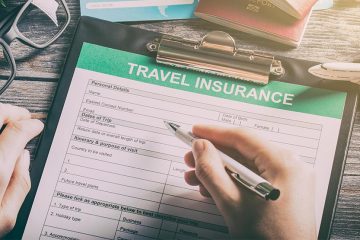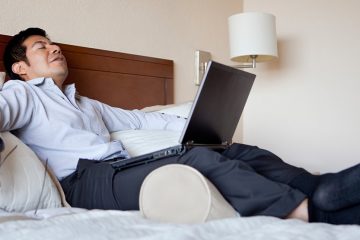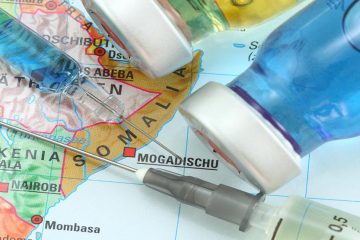How to Stay Healthy & Avoid Getting Sick While Traveling
Keep Sickness at Bay
Travel broadens the mind and enriches the soul, but it can also be pretty hard on the body. Long sleepless flights, jet lag, a lack of an exercise routine, convenient fast food while in transit, unfamiliar germs and many other factors can make it very difficult to stay healthy while you are traveling.
It takes some effort and strategy to safeguard your health, so here are some tips for how to stay healthy while traveling abroad.
Watch What You Eat
One of the main pleasures of travel is the excitement of tasting new foods from around the world. You’ll want to indulge in the local treats, whether it is chocolate and waffles in Belgium or deep fried haggis while in Scotland. However, make sure your diet is healthy, varied, and contains plenty of fresh vegetables and fruits along with the calorific local delicacies.
Take the time to visit a local market and pick up some fresh produce during your stay.
Watching what you eat also means being careful to avoid one of the most common travel illnesses — food poisoning. According to studies, approximately one-quarter of travelers will experience gastrointestinal problems within the first two weeks of an international trip.
So what’s the answer to how to avoid food poisoning while traveling? You can reduce your risk by making sure you only eat fruits and vegetables that can be peeled and that when you are eating street food it has been cooked fresh in front of you rather than sitting out all day.
The CDC has a helpful app called “Can I Eat This?” which will help you determine which foods are safe and which are more risky. It’s also a good idea to bring along some loperamide, a pill that will help ease symptoms if travelers’ diarrhea strikes.
Stay Hydrated
When you are dehydrated, your immune system performance is reduced and it is much easier to catch illnesses — especially if you are in an environment such as on a plane with many people. Regularly drinking water is one of the simplest ways to stay healthy while on vacation.
Of course, in some countries it is not safe to drink the water. Avoid drinks with ice in them and stick to the bottled water. Beware — sometimes shop owners will fill up used plastic bottles with tap water and try to sell them again, so always check to see that the bottle still has its original seal.
This article will take you through finding the best travel insurance for your vacation and suggest some potential plans to check out in your research.
Exercise
Keeping up with a regular exercise routine can be one of the best things you can do to not get sick while traveling. In addition to improving your cardiovascular health and allowing you to manage your weight, physical activity improves blood flow, allowing your cells to move throughout your body and do their job in an effective way.
A healthy routine of at least 30 minutes of exercise per day will help get your blood pumping, sweep your white blood cells back into circulation and make your immune system run smoothly. It doesn’t matter what type of exercise you do, as long as you are moving. Go for a run, go out dancing, rent a bicycle, hike up a mountain or take a walking tour of the city you are visiting!
Get a Good Sleep
Sleep deprivation will lower your immune system significantly, which can make you more vulnerable to getting illnesses as you travel. Also, it means that when you do get sick your body will struggle to fight off the contagion effectively.
So how can you make sure you get enough sleep while traveling? It can be difficult to get the recommended seven to eight hours per night when you are taking red eye flights through different time zones and sleeping in unfamiliar locations. Here are some tips to keep in mind:
- Bring earplugs and an eye mask so you can sleep even if you are in a hotel on a noisy street or a hostel dorm with another traveler who snores.
- For sleeping on planes or buses, there are inflatable sleep pillows that can make your seat a lot more comfortable.
- Avoid drinking excessively. Alcohol may help you fall asleep, but it negatively affects the quality of your sleep.
- Do something relaxing such as reading a book or taking a bath before you go to bed, rather than looking at your computer or phone.
- Try to fall asleep and wake up around the same time every day so your body starts to adapt to the routine.
- If you have a bedtime ritual, such as a cup of tea or listening to calming music, make sure you bring this routine along with you on your trip.









